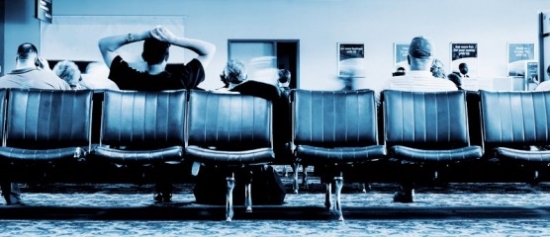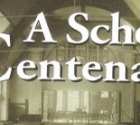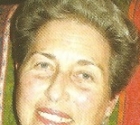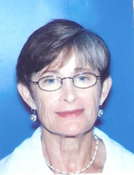
In the crowded waiting room of the Isotopic Scanning Unit of the hospital, I scrutinized the faces of the people who surrounded me; one could not escape the pain, the fear, the anxiety and the love that was mirrored there. As I studied and tried to read these expressions, memories of one Saturday afternoon in Scotland some years ago flashed into my mind and I recalled the sentiments that had moved me to write when I returned home that day.
It was after taking part in an Open Golf Competition when we gathered in the clubhouse for the prize giving – a group of women of assorted ages and backgrounds. Shafts of soft evening sunlight shone into the room and highlighted the faces of those present. The previous Saturday I had been in Israel, my second home at that time, and the month before in Belfast, my birthplace, and at that instant I was struck by the freshness and serenity of those Scottish faces. They did not appear care-worn, or the more mature amongst them even markedly wrinkled. Doubtless there were those present who had suffered a personal tragedy or come through hard times but there were none of those obvious signs of fatigue, worry and pain that were imprinted on the faces of women in the then affected regions of Northern Ireland, or on the faces of women in Israel, in Gaza or in the West Bank.
I have observed that anguish, the indelible lines of pain, and the eyes that carry sadness and worry even when smiling. I know families whose lives have been shattered by the terrifying injuries of terror and retaliation; families that have lost a son, a daughter, a father, a mother, husband or wife – gaps that are impossible to fill and suffering that is impossible to erase. I too have sat glued to news bulletins, my heart jolting every time the telephone or the doorbell rang, because my children and dear ones were part of that ongoing turmoil.
Scotland has its share of modern malaise – drugs, inner city violence, homelessness and unemployment exist. However, daily life is not shadowed by the threat of terrorism or war that result in this senseless loss of life. For the majority of us, memories of the Second World War have faded into the pages of history. In Scotland the hum of daily life was not shattered by sirens and shells, nor rockets and bombs, nor with the clatter of helicopters and the scream of fighter jets overhead. They had not yet been faced with the smoking ruins of a cherished home and, worse still, the shattered, or charred, remains of their loved ones.
I observed the women chatting and laughing, these Scottish women who are able to enjoy the splendid quality of life that is theirs for the taking, as it was far from the black shadow of war and religious fanaticism. I wanted to get up and tell them how lucky they were and that it didn’t really matter how wet or windy it was in this late flowering summer – or even how badly they had played. I wanted to tell them how beautiful their countryside is and how orderly their villages, how peaceful the normal pattern of life.
I thought of the innocence of children and how it can be manipulated and poisoned. I recalled the pinched and shadowed faces of children on the divided city streets of Belfast. The same faces you can see in our houses of mourning, in refugee camps, in Gaza, in Lebanon and in any place of unwanted occupation. Thoughts of many years of haunted history were in my mind as I looked at the faces surrounding me in that waiting room. Now we all had to share suffering again for these were the faces of those afflicted and those who cared and were trying to give support. I could hear Hebrew and Arabic and Russian, Yiddish too, as words of pain and distress were answered by those of comfort. And above us all was the incessant coverage of the opening of the next session of the Knesset beamed down from one of those now ever-present television sets. One after the other, those responsible for governing our lives spoke, thinking they were buying the understanding and the approval not just of those present but also of viewers across the land. Not one other person present either watched or listened to those speech givers. And the realization struck me of how deep is the loss of trust in our politicians and leaders. The prevalent lack of interest in these words was typical for they are now considered no more than empty promises and impossible undertakings by the Israeli public. And so it seemed to have been in the Knesset itself as the camera scanned the rows of deserted seats even before the session closed.
As it was in Scotland when I could not express the pain in my heart and mar a sunlit Saturday afternoon by speaking out, so it was in that waiting room. But as it was then, I have once again chosen the written word and I share it with you, hoping that you will understand.
-1372404808.jpg) Freda Keet at ESRA Tel Aviv
Freda Keet at ESRA Tel Aviv-1372524003.jpg) the key question
the key question -1372523803.jpg) Volunteering this year- English for Schools
Volunteering this year- English for Schools A School Centenary
A School Centenary Train Trips
Train Trips-1451900978.jpg) The Agunah- The Deserted Wife
The Agunah- The Deserted Wife Barbara Abraham
Barbara Abraham